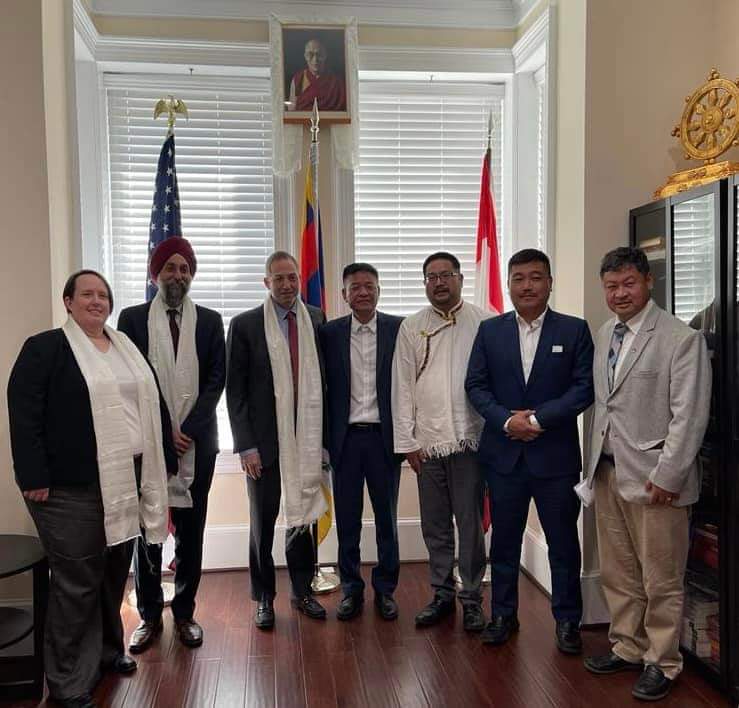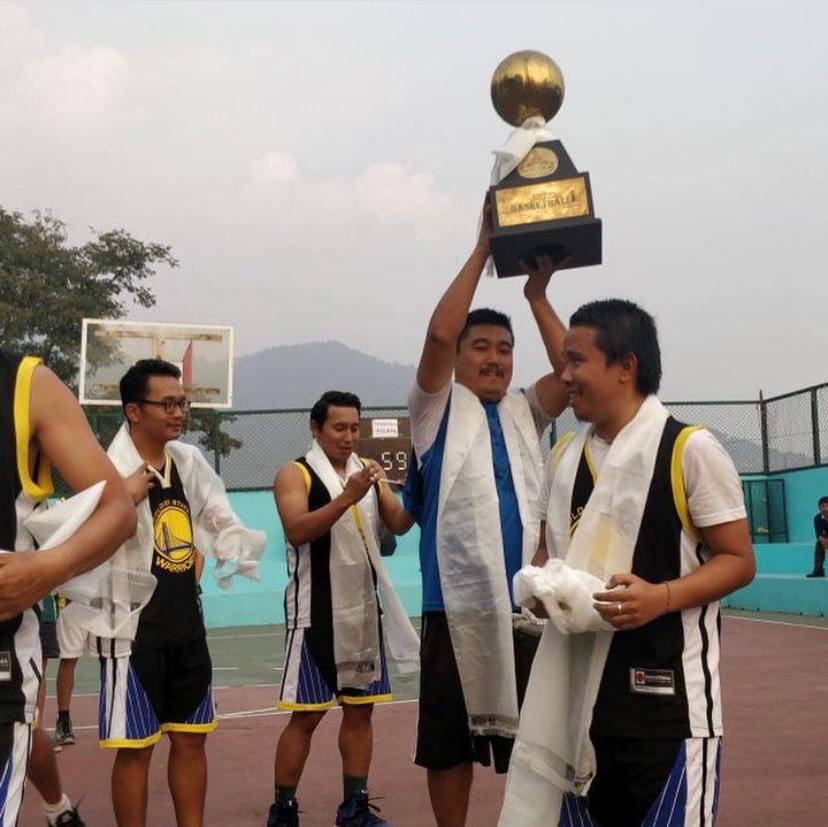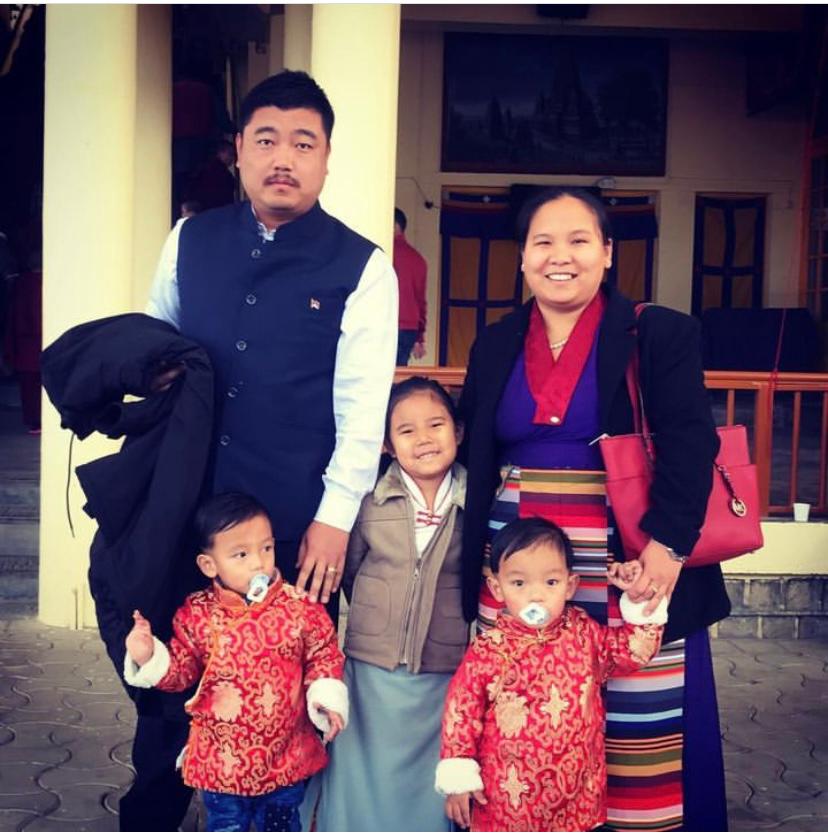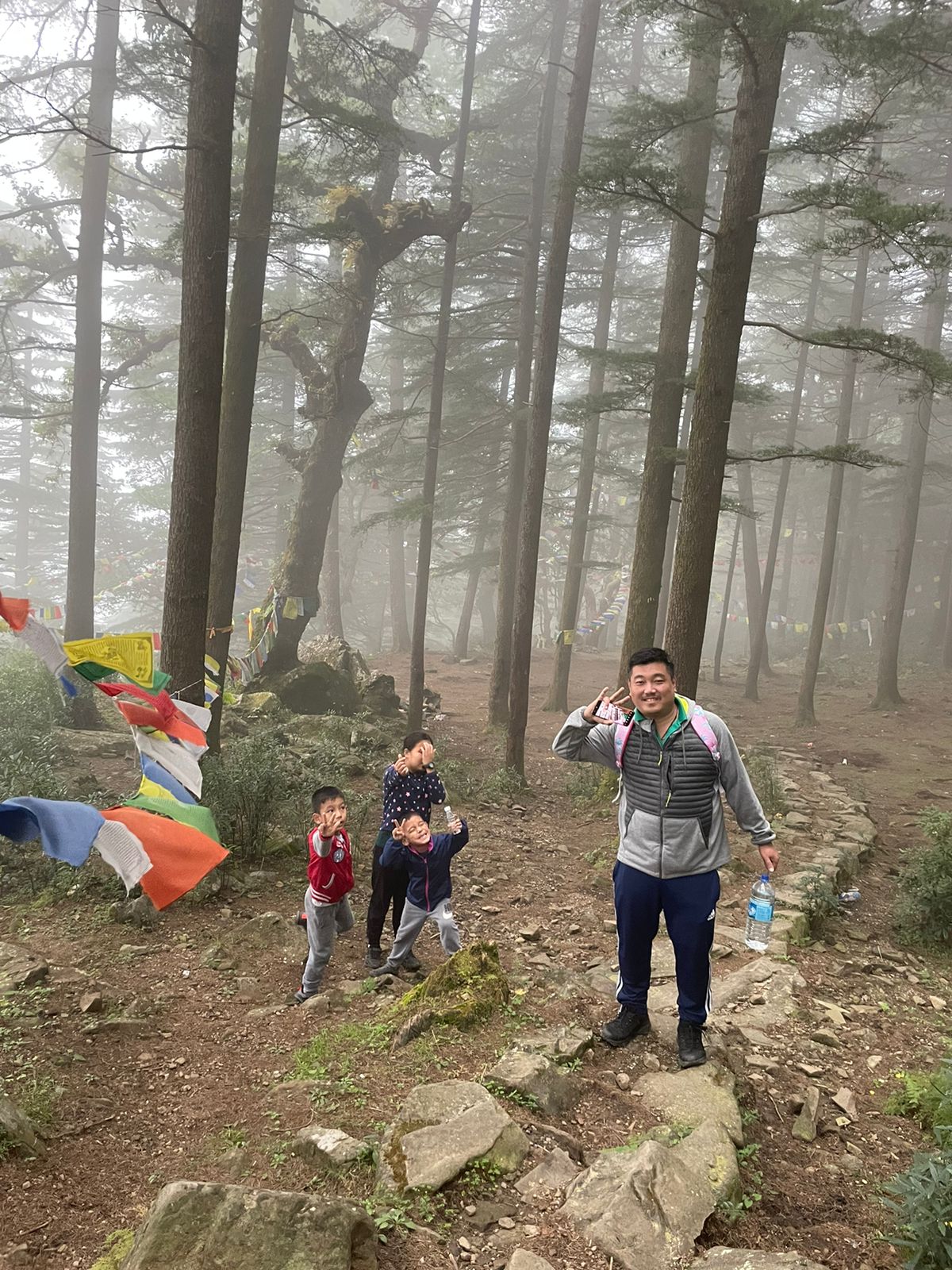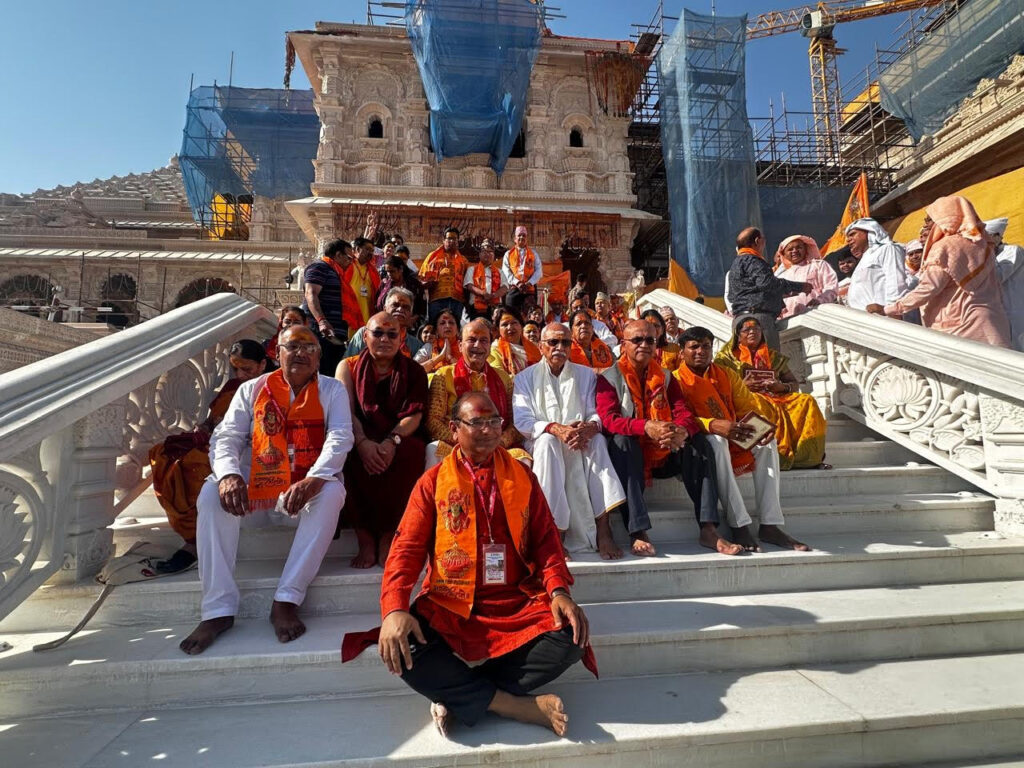
Mr. Tenzin Norsang, Deputy Director at SARD, Department of Finance, Central Tibetan Administration. Photo | Tenzin Phende | CTA
As a part of its shoutout campaign, Social Media Desk of the Department of Information and International Relations (DIIR) will be profiling a civil servant of the Central Tibetan Administration. This week we are pleased to profile Mr Tenzin Norsang, Deputy Director at SARD, Department of Finance, CTA.
Social Media Executive (SME): Could you briefly tell us about yourself?
Tenzin Norsang (TN): I was born in Hunsur Rabgyaling Tibetan Settlement, and attended the local Central Tibetan School. I have been fortunate to be brought up in a family where the children in the house were the most important and my parents went out of their ways and means to provide for my younger sister, brother and myself. I am indeed blessed and grateful every day for my parents and grandparents. At the age of 7, I received an opportunity to complete my middle School at Baldwin’s Boys School in Bangalore and then complete my Secondary education at Stanes School in Ooty. I completed my formal education with a postgraduate in program management at the Indian Business Academy in Bangalore.
I spent the majority years of my academic life studying at Christian Schools, so I have been accustomed to studying the bible more than my own religion. This experience definitely, had a huge impact on me in appreciating Buddhist philosophy from different perspectives. From a very young age, I have always been very inquisitive and enjoyed learning new things, whether it’s a new language, a new sport, different cultures and their histories, new video games, or basically, anything interesting and new. One of my favourite things to do is watch documentaries and videos from where I received so much new information and knowledge about various topics. This also enabled me to comfortably connect with people from different cultures. I used to play every sport and my favourite among them was volleyball as I was good at that. I also enjoy taking strolls through nature especially organising picnics with my family in nature.
Deep down, I think I am an introvert, however, my friends and family will disagree with this, as they think of me as an outspoken person but I make an effort in being outspoken. My exposure to other cultures has definitely had an impact on my personality both positive and negative. Like many Tibetans, I think I am quite adaptive which I consider as my strength.
SME: Please explain your job description and how best your work represents you or vice versa.
TN: I am Deputy Director at SARD and my job is to work closely with the SARD Director and assist the Director on all aspects of SARD’s overall administration, programs and organisational development. SARD is the nodal agency for donor coordination and also acts like the project management office for the CTA. One of my main tasks is facilitating and coordinating with different people and organisations internally and externally. Besides that, I have to attend frequent meetings and discussions deliberating on various topics, such as designing new project plans, project budgets, developing project timelines, fundraising for projects, writing proposals and reports, data collection, and data analysis (something I enjoy doing) and other similar activities. In addition, SARD must maintain good donor relations; hence I am one of the points of contact between CTA and the donors. As mentioned earlier, I enjoy meeting new people and so the task of engaging with donors and supporters comes easily to me.
SME: What inspired you to serve the Central Tibetan Administration?
TN: I still remember my dream ambition as a young kid was to become a businessperson only because I wanted to make money. So, growing up, I only thought of becoming very rich and making lots of money. I was quite materialistic in that way. Back then, I knew nothing much about CTA until I joined the administration in 2014. Joining CTA was very coincidental as it was my father who urged me to apply for the post of a new project staff that the Tibetan Entrepreneurship Development (TED) project was looking for. I didn’t get selected but luckily for me, the person who got selected withdrew, and I was the second rank out of three interview candidates. Before joining CTA, I worked in day trading in the capital markets of India, and I traded for almost 4.5 years. So basically, I landed in CTA, unlike many who join with high inspirations and motivations to serve the community but out of sheer luck and coincidence. But of course, since joining the CTA, I got to learn so much and become so immersed in the Tibet movement that it would now be very difficult for me to do anything else but work for the Tibetan movement.
SME: What does it mean for you to be a CTA Servant?
TN: Central Tibetan Administration has two simple but vital missions. One is to resolve the Sino-Tibet conflict, and the other is to sustain the Tibetan community in exile until the Sino-Tibet conflict is resolved. These are my missions now in serving the CTA and the Tibetan community. I get up in the morning thinking how best my daily activity and efforts contribute towards these larger goals. Every small action, whether it is speaking to a donor, drafting a proposal document or writing a project report, I think about how my effort contributes towards the larger goal. And for me, this is what it means to be a CTA staff. Though it may sound cliche, I often get dreams of essential tasks and ideas that I may have been discussing in the office. And I enjoy every bit of it.
SME: How best do you think you could make a difference to CTA?
TN: I genuinely believe in collective efforts and teamwork. So, no single individual can make a significant impact without teamwork. However, on my personal level, I try and contribute by making sure all the stakeholders of the CTA are well aware of our situation and make sure they understand and feel our struggle and cause. With my ability to communicate articulately, I try to resolve bottlenecks in any of our works and do my best to showcase the best impression of the CTA to our partners. I have always believed tolerance and compassion are virtues that can help build and sustain any community in this world and currently, these virtues are needed in abundance, especially in Tibet, given the gravity of the current situation of unrest, lack of freedom, and disharmony. Having lived all my life with the refugee tag, I have learned to adapt and evolve to the circumstances and situations I have faced to be provided with equal opportunities without discrimination. Furthermore, I have experienced freedom as a foreigner and have educated myself to support my community in exile towards self-reliance through sustainable organisational development. My unique background and personal experience have certainly been an added advantage to the workplace. I can provide a different perspective in achieving our dream with genuine compassion and unconditional tolerance as bedrock in all efforts.
SME: Who is your role model and why?
TN: I have many role models. I will start with His Holiness. Like many others, I am one hundred per cent in awe and admiration and take pure and undiluted inspiration from His Holiness the Dalai Lama. Whenever I think of His Holiness, I get renewed energy to work for the CTA and my parents and grandparents. They have showered my siblings and me unconditionally and taught me how to show genuine compassion to others. My mother still cares for me even at this age, calls me to wear warm clothes, and sometimes even polishes my shoes against my many requests. I am blessed to have a mother like her. My wife thinks of me above herself and dedicates her life to my happiness. But, I tell her, you are also sacrificing and serving the CTA and the Tibetan community through me. With my wife’s companionship, I could do many things that I proudly say contribute to the CTA. I remember my wife taking care of 3 kids, the youngest being less than two years old, at home single-handedly when I frequently travelled for work. She is truly my role model. I have taken countless inspirations from many friends and family, and even strangers, through small and random acts of inspiration. I believe all of them have been role models to me in some way or the other.
SME: What is your piece of advice for young Tibetan serving or wishing to serve at CTA?
TN: My sincere request to every Tibetan in exile is to think of His Holiness the Dalai Lama. Even at such an age, he works tirelessly for the Tibetan community. How can we not do our part? Think of our brothers and sisters inside Tibet. They endure harsh and endless pain, believing we in exile are working for them. How can we forget them? Think of all those who have sacrificed their lives for the Tibet cause. We cannot let their sacrifice go in vain. And lastly, think of our parents and grandparents who toiled and laboured to establish such an efficient system and community in exile for us to enjoy comfortably. We must take on the mantle, work even harder, show our worth, and ensure our dedication to realising the long-after dream of returning to Tibet. Think of the countless merciless beatings, brutal murders, rapes, senseless destructions, unwiped tears, and unhealing wounds, all suffered by Tibetans inside Tibet. Our generation cannot go soft. We must continue to strive and achieve the wishes of His Holiness the 14th Dalai Lama, the aspirations of our brothers and sisters inside Tibet, our grandparents and parents and our children and future Tibet. Bod Gyalo!

Mr. Tenzin Norsang accompanying the delegation from Friedrich Naumann Foundation (FNF) received an audience with His Holiness the 14th Dalai Lama at his residence in Dharamshala, HP, India, on 23 March 2023. Photo | OHHDL
